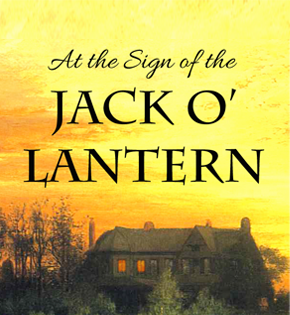Mary Johnston's bestselling novel To Have and To Hold was written in 1900, but it takes place in Jamestown, Virginia over the course of 1621 and 1622. She drew heavily on the rich and dramatic history of the time period, and though the brave men and women who pioneered England's first New World colony were isolated and had many problems of their own to contend with, there were some far-reaching developments, many of which would affect them in one way or another. Here's a sampling of news headlines from 1622:
February 8: King James I of England disbands the English Parliament. After years of employing the "Policy of the Spanish Match" in which James attempted to keep peace with the Spanish by negotiating a potential marriage with the Infanta Maria, his appeasement plan begins to fall apart. After executing Sir Walter Raleigh for fighting the Spanish in the New World in 1618, the public is outraged, and support for James's Spanish appeasement plan dwindles. Everything comes to a head when Spain invades Bohemia and the Rhineland. James tasks Parliament with funding a military expedition to support his son-in-law Frederick V, but Parliament drafts a petition for outright war on Spain, requests that James's son Charles marry a Protestant, and urges James to enforce the anti-Catholic laws of his country. James's response was to threaten Parliament with punishment for interfering with royal prerogative, and when Parliament issues a formal protest for their rights and freedom of speech, James rips the protest from the record book and dissolves Parliament in a fury.
March 22: The Jamestown Indian Massacre begins. In 1618, after several years of peace, Chief Powhatan dies, and his brother Opechancanough assumes the role of chief. Having long been against his brother's peaceful policies, Opechancanough spends the next four years fomenting hatred of the white settlers and banding the Algonquian tribes together. On March 22, 1622, he leads a series of organized attacks on English farms and homesteads centralized around Jamestown. Though the people of the town were warned in time to flee to the safety of the adjacent fort, 347 English settlers in the surrounding area were caught unaware and killed, a full one-third of the colony's population. This incident begins what would become known as the Second Anglo-Powhatan War. It also serves as the focal point of a climactic sequence of events in Mary Johnston's bestselling novel of 1900, To Have and to Hold.
March 22: The Jamestown Indian Massacre begins. In 1618, after several years of peace, Chief Powhatan dies, and his brother Opechancanough assumes the role of chief. Having long been against his brother's peaceful policies, Opechancanough spends the next four years fomenting hatred of the white settlers and banding the Algonquian tribes together. On March 22, 1622, he leads a series of organized attacks on English farms and homesteads centralized around Jamestown. Though the people of the town were warned in time to flee to the safety of the adjacent fort, 347 English settlers in the surrounding area were caught unaware and killed, a full one-third of the colony's population. This incident begins what would become known as the Second Anglo-Powhatan War. It also serves as the focal point of a climactic sequence of events in Mary Johnston's bestselling novel of 1900, To Have and to Hold.
April 19: Richelieu is made Cardinal in France. Born Armand Jean du Plessis, Richlieu rose from bishop to Secretary of State and then to Cardinal, and served as chief minister to Louis XIII from 1624 until his death in 1642. He is considered to be the world's first "Prime Minister" by today's definition of the term. Richlieu was instrumental in reforming France and creating an absolute monarchy. His attempts to bring France through the Thirty Years' War engulfing most of Europe led to a falling out with the Catholic Church and later with Pope Urban VIII, who refused to name Richlieu the papal legate in France. Despite a lifetime filled with controversy, he remains one of the most important figures in French history.
May 20: Ottoman Sultan Osman II is strangled by rebelling Janissaries, who revolted when they heard rumours that Osman II was planning to move against them. Osman ascended to the throne at the age of fourteen, but quickly sought to assert himself as a ruler. After securing the empire's eastern border by making peace with Persia, he personally led the Ottoman invasion of Poland, but was soon forced to sign a peace treaty after the Battle of Khotyn. He returned home in shame and blamed the cowardice of the Janissaries, the infantry units who formed his household troops and bodyguard, for his humiliation. When Osman started planning to create a new, loyal and ethnic Turkic army, the Janissaries rose up against the palace, imprisoned the Sultan, and later executed him by strangulation.
May 20: Ottoman Sultan Osman II is strangled by rebelling Janissaries, who revolted when they heard rumours that Osman II was planning to move against them. Osman ascended to the throne at the age of fourteen, but quickly sought to assert himself as a ruler. After securing the empire's eastern border by making peace with Persia, he personally led the Ottoman invasion of Poland, but was soon forced to sign a peace treaty after the Battle of Khotyn. He returned home in shame and blamed the cowardice of the Janissaries, the infantry units who formed his household troops and bodyguard, for his humiliation. When Osman started planning to create a new, loyal and ethnic Turkic army, the Janissaries rose up against the palace, imprisoned the Sultan, and later executed him by strangulation.

November 8: The future King Charles X of Sweden is born. He would become king after his cousin Queen Christina abdicated in 1654. His reign would be dominated by war with Poland and Denmark, and be short-lived, as he died of illness six years later at the age of 37.
December 28: Francis de Sales, Bishop of Geneva suffers a stroke and dies while traveling in the entourage of the Duke of Savoy. He was noted for his deep faith and his gentle approach to the religious divisions in his land resulting from the Protestant Reformation. His "Introduction to the Devout Life" was written especially for laypeople, which was unusual for the time. In it he counseled charity over penance as a means of progressing in the spiritual life. Many miracles were reported at his tomb in Annecy. He was canonized in 1665 by Pope Alexander VII. In 1923, Pope Pius XI proclaimed him a patron of writers and journalists.
POSTED BY: Jenny Q
To Have and to Hold by Mary Johnston
Professionally edited and formatted for today's readers!
Get the Legacy Vintage Collection enhanced ebook edition for $1.99!



































